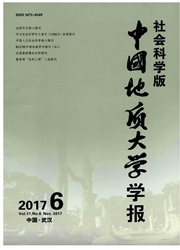

 中文摘要:
中文摘要:
通过建立2003—2014年省级面板数据模型,实证检验我国环境税费政策对节能减排、经济增长以及要素收入分配的影响效应。结果显示:我国融入型环境税费制度安排,对环境改善的作用非常微弱;征收环境税费具有促进经济转型和产业结构优化升级的作用,经济增长红利得到较好实现;由于环境税费负担能够转嫁,在一定程度上抵消了对企业污染排放行为的控制效果,同时因劳动要素受供求弹性影响承担了更多的税负,劳动收益率下降,环境税费政策使得要素收入分配中资本与劳动的差距拉大。实现绿色发展、改善要素收入分配,需要改革碎片化的融入型环境税费制度,确立环境保护税的主体税种地位,并扩大课税范围、优化税率设计。
 英文摘要:
英文摘要:
Based on provincial panel data from 2003 to 2014,this paper empirically tests the effects of China's environmental tax and fee policies on energy reduction and emission control,economic growth and factor income distribution.The results show that China's integrated environmental tax and fee policies have little impact on improving environment quality.It can also be seen from the results that environmental tax and fee policies contribute to economic transformation and upgrade of industrial structure,so the dividend of economic growth has been realized better.The results also illustrate that the tax shifting offsets the effects on controlling enterprises' emission to some degree;moreover,labor factor burdens more shares because of elasticity of supply and demand and returns on labor will decrease,which indicates a widening gap between capital and labor in factor income distribution.Therefore,it will be necessary to achieve green development and improve factor income distribution by reforming fragmented and integrated environmental tax and fee policies,making environmental protection tax become a main tax,expanding the scope of environmental tax and optimizing the tax rates.
 同期刊论文项目
同期刊论文项目
 同项目期刊论文
同项目期刊论文
 期刊信息
期刊信息
